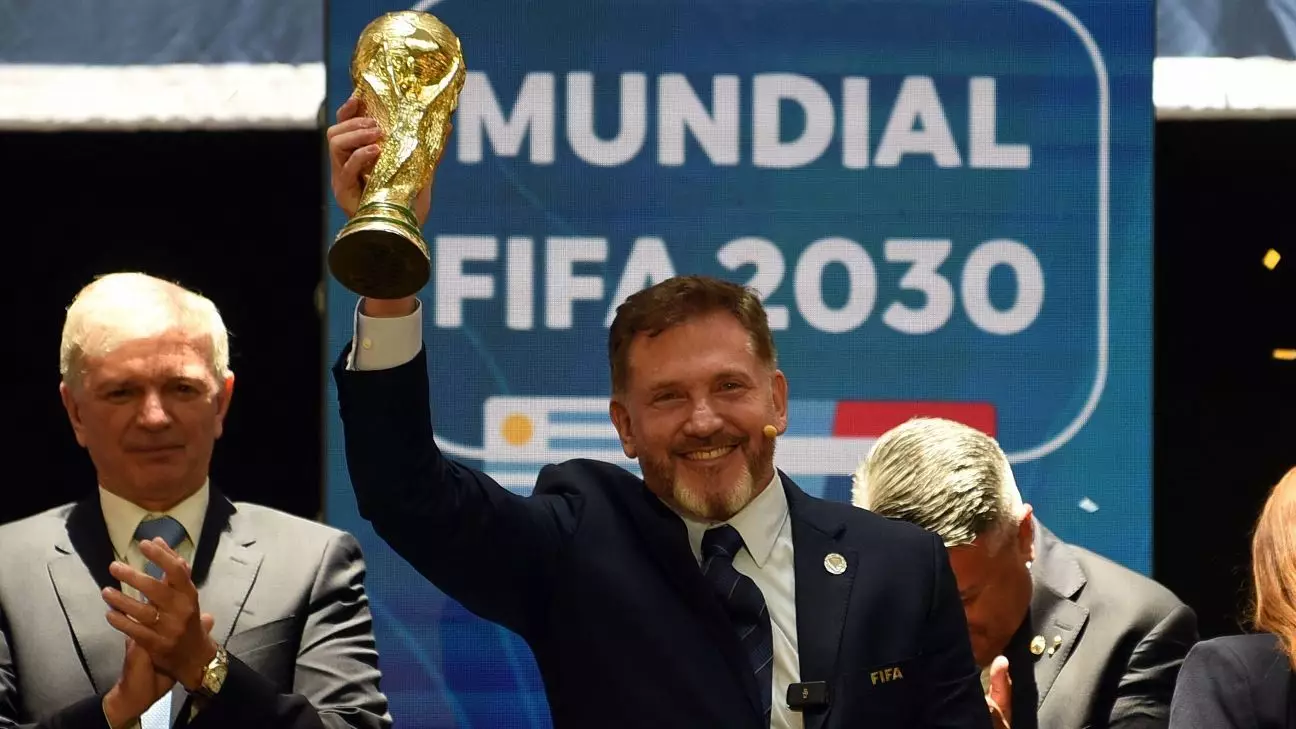In a groundbreaking move, Alejandro Domínguez, the president of CONMEBOL, has proposed an ambitious expansion of the men’s 2030 World Cup from 32 to 64 teams. This proposal was first alluded to in March during an online meeting of FIFA’s ruling council, but it has now been brought into the spotlight at the 80th Ordinary Congress of CONMEBOL. The significance of this expansion cannot be understated; it coincides with the centenary celebration of the World Cup, a momentous occasion that deserves a grand spectacle. Domínguez’s assertion that “100 years are celebrated only once” perfectly captures the sentiment behind this remarkable initiative.
Historical Context and Unique Logistics
The 2030 edition promises to be exceptional not only because of the expansion but also due to its diverse geographic reach, with six nations hosting across three continents. Uruguay, which hosted the inaugural World Cup in 1930, will take center stage, albeit modestly, with only one scheduled match. The additional host nations—Paraguay, Argentina, Spain, Portugal, and Morocco—create a dynamic host coalition that underscores soccer’s global appeal. This perspective shifts from merely crowning a champion to creating a festival of soccer that encompasses cultures and nations far and wide.
A Platform for Inclusive Participation
Domínguez’s proposal is rooted in a firm belief in inclusivity. By expanding to 64 teams, every CONMEBOL member nation gets a shot at participation. This is particularly significant for Venezuela, which has historically struggled to qualify. The notion that “nobody on the planet is left out of the party” reflects a profound commitment to widening the scope of the game. This approach not only fosters a stronger competitive spirit but also imbues fans from diverse backgrounds with a sense of ownership of this global event.
The Critique: A Double-Edged Sword?
However, the proposal has not been met with universal acclaim. Figures like UEFA President Aleksander Čeferin have raised alarms about the potential dilution of quality in a 64-team tournament. Critics argue that a more extensive tournament could lead to subpar performances, thereby affecting the prestige of the event. Furthermore, concerns about the integrity of the qualification process surface, with debates about whether additional spots would inadvertently lower the stakes for qualifying nations. It’s a complex situation, balancing the excitement of expanded participation against the risk of watering down the competition.
Transforming the World Cup Experience
Ultimately, the vision for the 2030 World Cup stands as a testament to football’s potential as a unifying force. The prospect of 64 teams competing on three continents signals a radical transformation of the World Cup experience, positioning it not just as a tournament but a global celebration of soccer. Domínguez’s push for this historic leap is a call for every fan, every country, and every player to celebrate their love for the game. The upcoming century of soccer is an opportunity to embrace change, fostering both competition and brotherhood through a sport that transcends borders.

